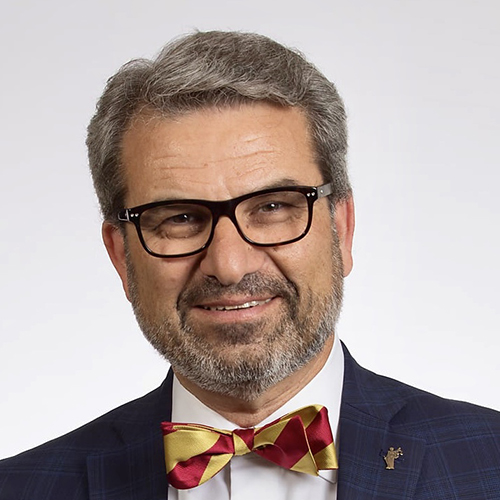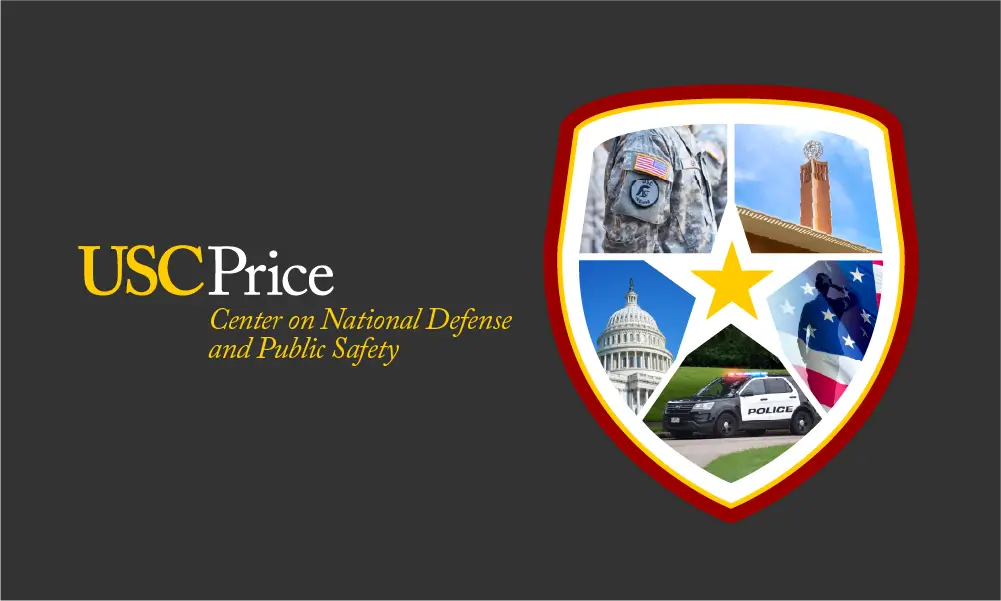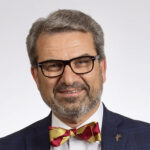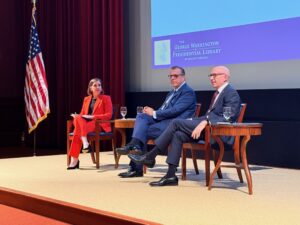Speaking at George Washington University to military doctors and nurses stationed in major cities, Frank V. Zerunyan posed an unusual question.
How many of you, he asked, can find the bathroom in your nearby hospital?
Not everyone could.
“If you don’t know where the bathrooms are, chances are you don’t know where the operating room is. And guess what? When an 8.5 magnitude earthquake hits L.A., you’re going to want to know,” said Zerunyan, a Professor at the USC Price School of Public Policy. “My point is that you need to have better relations with the civilian world in order to manage calamities.”

A new research center at the USC Price School seeks to close gaps between civilian and military professionals to better coordinate responses to disasters, from pandemics and wildfires to cyberattacks and missile launches.
The Center on National Defense and Public Safety (CNDPS), a transformation of the now-former Safe Communities Institute, will serve as a home base for education, engagement, and research in national defense, public safety, and civil-military collaboration. The new center will build on USC Price’s strengths in educating leaders in local government, law enforcement and the military – putting professionals from each discipline under one roof to deepen partnerships.
“It’s a great opportunity for us to truly show our multidisciplinary strength in public affairs,” said Zerunyan, the center’s Executive Director. “Given all of the calamities we’ve experienced, and unfortunately, the wars and conflicts we’re experiencing around the world, the center is very timely.”
Zerunyan, a four-term Mayor and Councilmember in the City of Rolling Hills Estates, California, has served on several city, county, and regional policy boards and committees. He also helms USC’s Reserve Officer Training Corps (ROTC) and Nautical Science programs. One of the insights he gleaned from those positions is the lack of coordinated emergency management plans among city, law enforcement and military agencies. The center will conduct research on building a prototype for a multijurisdictional emergency plan.
The recent Los Angeles wildfires offer a case study. As fires raged through the Pacific Palisades, utilities sought access to facilities controlled by the military, Zerunyan said. Military staff noted they do not take orders from utilities.
“We can’t afford that,” Zerunyan said. “We need to have the National Guard, the military installations, utilities, school districts, cities, counties, LAPD, Sheriff’s Department all talking.”

Master of Public Administration Online
Advance Vital Institutions
Advance your career and the institutions you serve with our exceptional MPA online.
Find Out MoreThe center will expand existing programs such as ROTC and USC SHIELD – an executive education program about military conflict deterrence. It will also launch new initiatives including BASECAMP (Building Advanced Skills for Effective Civil and Military Partnerships), a training partnership with the U.S. military. Law enforcement and first-responder education programs previously managed by the Safe Communities Institute will continue under CNDPS.
“The Center will build on USC’s existing strengths, partnerships, and collaborative spirit to bring together stakeholders and bridge policy gaps in emergency preparedness and crisis management,” said USC Interim President Beong-Soo Kim. “This represents USC at its finest—breaking down silos, developing integrated best practices, and multiplying the impact of our innovative work.”
“In an increasingly complex security environment, CNDPS will foster cross-sector cooperation and interdisciplinary scholarship to strengthen institutional resilience and leadership capacity,” said Chris Boone, Dean of the USC Price School.
Over the next few months, the center will focus on securing industry and government sponsorships, developing research initiatives, and designing executive education offerings for key stakeholders. Zerunyan plans to host summits and networking events to regularly bring those stakeholders together, from mayors to military colonels.
“Each group has talent in it,” Zerunyan said. “It’s just that they don’t talk to each other.”





